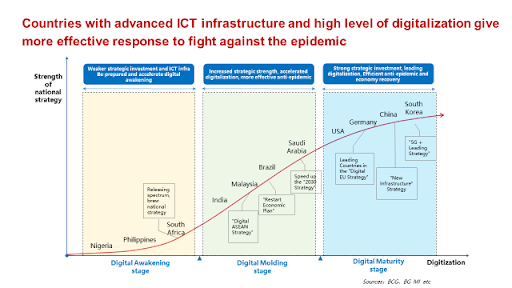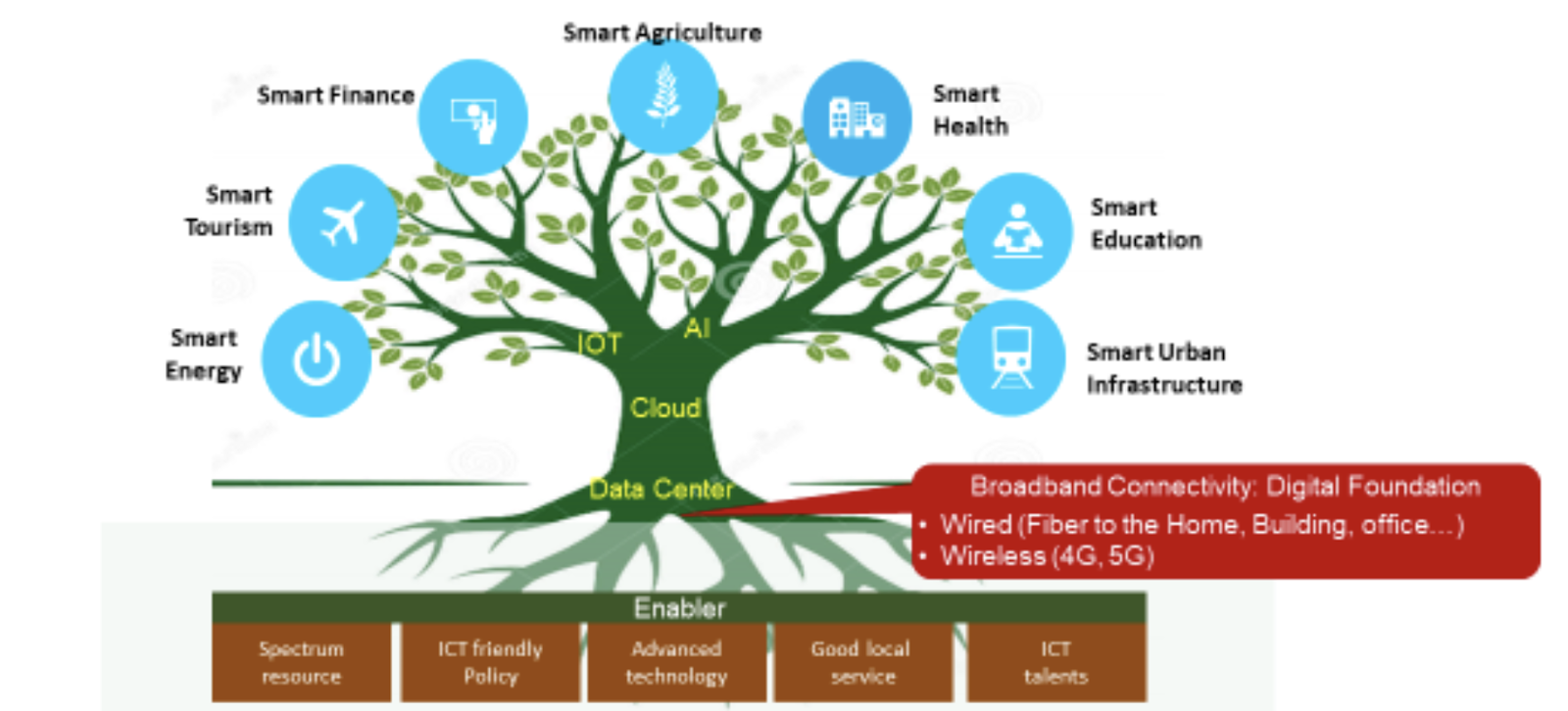Huawei has been serving Nepal's ICT industry for the last 21 years. As a leading global provider of information and communications technology (ICT) infrastructure and smart devices, Huawei is committed to bringing digital experience to every person, home, and organization for a fully connected, intelligent world. Sustained, heavy investments in R&D is one of the key factors that Huawei has made Huawei a leading global company. Huawei has connected over three billion people in more than 170 countries, including in Nepal.
Working closely with Nepal’s telecom operators, Huawei brought 2G/3G/4G technology to Nepal and has made connectivity available across the country. With the introduction of 4G technology, Nepal has seen a massive increase in the use of the internet over the past years with high quality and speed. This technology has increased online activities such as e-commerce, online education, digital finance, online video streaming, online social networks, benefiting the country’s socio-economic sectors.
Besides building connectivity, Huawei`s ICT technology and ecosystem is helping the government, financial institutions, airlines, Internet Service Providers, and the media. It has helped speed up Nepal’s digital transformation by improving their internal efficiency, and making their services more convenient, easy, and fast. In the consumer business, Huawei is one of the most favorite smartphones and smart device brands in Nepal. Huawei smartphones are widely used in Nepal by people of all segments, making their lives more convenient.
Huawei has always valued our corporate social responsibility in Nepal. We have managed to develop more than 10,000 ICT talents directly and indirectly in the last 21 years in Nepal. Many of them are now working in top telecom operators, government projects and different IT sectors in Nepal. Huawei Nepal has been an attractive organization to great talents, and became a gateway to the international technology arena for aspiring technophiles.
Tech Sovereignty: A Quest for Nepal

The dedication of Huawei Nepal can be reflected from constant work and effort even during natural disasters such as the 2015 earthquakes, floods and storms in the Terai in 2017 and 2019. During the 2015 earthquakes, Huawei worked quickly to fix the telecom communication system and helped in rescue operations. We also helped the telecom operators build the wireless base station site in the Everest Base Camp, which helped to connect the communication blind spot to the outside world. Even during the COVID-19 pandemic, Huawei's team stayed with telecom operators to ensure the smooth operation of the network.
The sudden outbreak of COVID-19 has irreversibly and indiscriminately impacted all of us and forever changed the world. Strong ICT infrastructure such as 4G/5G mobile broadband network coverage, data center, and cloud platform will not only make telemedicine and online virus contact tracing to fight the pandemic easier, but also enable the digital economy.

Internet data consumption in Nepal has increased after the pandemic. Online activities have also increased during day time, considering that more and more people are getting used to the modality of work from home and study from home. However, in some rural areas, the weak internet broadband coverage has limited the number of people using online platforms. Besides major cities like Kathmandu, Pokhara, Butwal and Chitwan, most of the remote parts are still not covered by broadband connectivity which is affecting lives and economic activities.
Growth of connectivity will have a significant rise in the use of data, impacting the vast majority of the population. However, for smooth and better connectivity, flow of data and demand for IT resources, it requires proper ICT infrastructure and data centers. This will help provide business opportunities and boost the digital economy market. From the city centers to the rural areas, connectivity will change the graph of the data traffic. This will give rise to the data center concept. With the increased connectivity and growth of data flow, there will be a rise in the requirements of data centers along with other ICT setups. Building data centers in different parts of the country will help to connect securely and seamlessly.
We hope that with the rise in connectivity, many government and corporate offices won't have to depend on the city centers. Increase in connectivity will provide them with the privilege to build their offices across the country. And with the increase in both the government and private institutions, ICT infrastructures, including data centers have to be built. Similarly, once the international bandwidth connectivity from the neighboring countries starts to increase, data flow from this region will also increase. Hence the requirement of data centers along with other infrastructures will be a major requirement. This will not only help build a better ICT platform, but also creates jobs and will contribute to the economy.
As a responsible corporate organization in Nepal, Huawei is committed to contributing to the digital foundation in Nepal, including high quality, wide coverage and affordable broadband connectivity and advanced data centers.
The government of Nepal has initiated the Digital Nepal Framework with different sectors, such as energy, tourism, finance, agriculture, health, education and urban development. In our opinion, digital foundations such as broadband connectivity and data centers are the most important elements. We consider connectivity and data centers as the root of a tree, to provide water and nutrition for the fruitful outcome of digitization of different sectors. Friendly ICT policy, advanced technology, good local services and ICT talents can enable a big tree of digital Nepal to grow healthier. We strongly believe that, with the joint effort of all the ICT stakeholders in Nepal, everyone can benefit from the digital world to fulfill the vision of Prosperous Nepal and Happy Nepali.
I wish everyone a Happy New Year, and hope for a better and prosperous time.
Zhang is CEO of Huawei Nepal







































